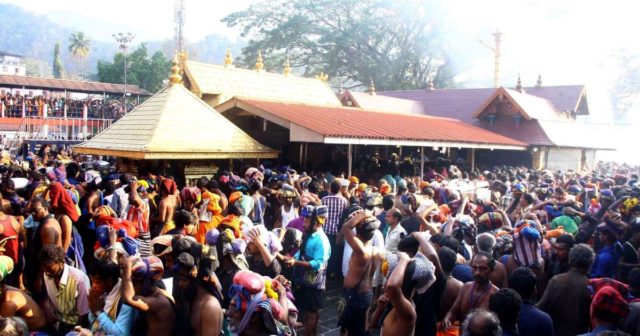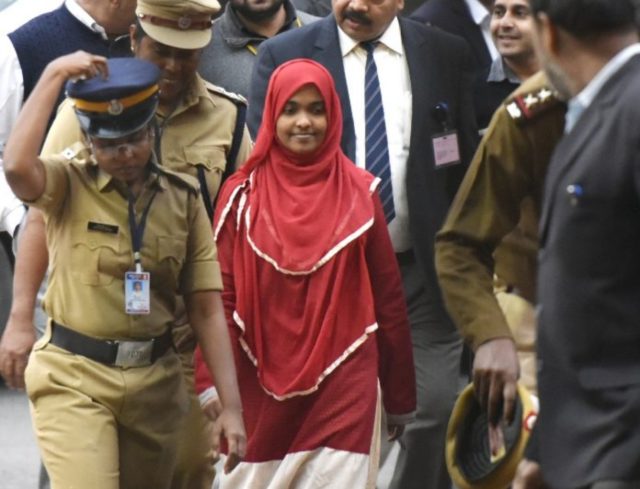The struggle for gender equality has been long and it is not likely to end anytime soon. It is very essential to be critical periodically about the changes made.
At the same time, it is extremely important to appreciate the positive changes. Appreciation will give way to motivation to do more.
Below are some judgements made by the judiciary, starting from 2016 that have made significant positive impact on numerous women’s lives.
- The Haji Ali Case
The Bombay court, in August 2016, allowed women to enter the sanctum sanctorum of the Haji Ali dargah. The Bombay High Court held that the dargah trust was a public charitable trust and thus open to the public.
Once, given the status of public place of worship, the court held fundamental rights under
– Article 14 (equality before law),
– Article 15 (prohibition of discrimination on grounds of religion, race, caste, sex or place of birth) and
– Article 25 (freedom of conscience, practice and propagation of religion)
of the Constitution being violated by the act of prohibition of women from entering the dargah
- The Triple Talaq Case

In August of 2017, the Supreme Court struck down the practice of talaq-e-biddat. The court held the practice to be arbitrary as it does not leave any room for restoration of marriage.
It also lets the man end the marriage without consent of his wife or without going under any legal or fair process. This case ended sufferings for many Muslim women.
- The Sabarimala Case
The Supreme Court declared the practice of not allowing women of menstrual age inside the Sabarimala temple violative of their fundamental rights. Article 25 which allows everyone to practice religion freely was held violated by such a practice.

In all these cases, women were put against the religion. Religion has always had practices that have not been clearly rational. And, these irrational practices are to be adopted as they are, without any question.
This put the court in a difficult position of finding out if secular nature, supporting all religions, is more important or religious freedom for everyone is more important.
The judiciary in such a condition adopted that the practices, such that the absence of the same would alter the very nature of the religion are more integral rather than those in debate.
Also read: Is “Love Jihad” One Of The Most Successful Conspiracy? We Demystify It
- The Love Jihad Case
The Supreme Court highly criticised the judgement of the Kerala High Court for declaring Hadiya’s (Akhila Ashokan) marriage to a Muslim man and her converting to Islam as a preference of personal choice as null and void. The Supreme Court upheld Hadiya’s choices.

- The Adultery Case
In the 27th September 2018 judgement, where the constitutionality of the nature of adultery provision was questioned, the Court concluded the provisions as unconstitutional.
Also, the court made it a point that sexual autonomy of a woman, irrespective of marital status, is a constitutionally guaranteed freedom.
The courts have helped women in the country to come closer to equal rights. They stood against oppressive practices by striking them down.
However, in these judgements, a single voice of the judges was lacking to come to the same conclusion. The judges arrived at the same conclusion by different rationales.
For example, in the triple talaq case, a small majority of 3 out of 5 judges held the practice unconstitutional. Justice R F Nariman and Justice Uday Umesh Lalit held that the practice is arbitrary as it is violating Article 14 while Justice Kurain was of the opinion that this Islamic practice was against Quran and hence, cannot enjoy constitutional protection.
There is no denying the fact that striking down triple talaq was major and historic.
Nevertheless, a single voice will put forward the message more strongly. Also, calling this practice unconstitutional just because Quran doesn’t support it, doesn’t make it human or doesn’t guarantee fundamental rights.
The point should be that these practices aren’t consistent with fundamental and human rights. Establishing that the judgement is for women’s right is as necessary as striking them down.
Sources: EPW, Firstpost, Live Law, Indian Express
Image credits: Google Images
Find the blogger: @kumar_darshna
Recommendation:



























